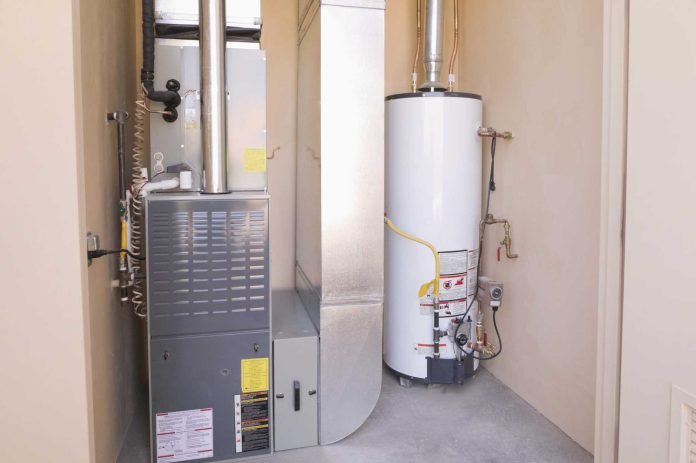A water heater is an essential appliance in any household or commercial establishment. It provides hot water for a variety of uses, such as showering, washing clothes and dishes, and cleaning. Over time, water heaters may experience wear and tear or fail altogether, requiring repairs or replacements. In this article, we will discuss the benefits of repairing and replacing water heaters, including improved energy efficiency, increased hot water output, and risk management.
Benefits of Water Heater Repair
1. Cost Savings
Repairing can be a cost-effective solution if the problem is minor or if the appliance is still relatively new. it can also save money on energy bills by ensuring that it operates efficiently.
2.Reduced Waste
Repairing can help reduce waste by keeping it out of landfills. This can be especially important if the water heater is still in good condition and has a lot of life left.
3. Convenience
Repairing can be a convenient solution if the problem is minor and can be fixed quickly. This can help ensure that hot water is available when it’s needed.
4. Familiarity
With repair, the homeowners get to maintain the familiarity they have with their current water heater, including its features and how it works. This can be especially beneficial if the homeowners are already satisfied with their current model and do not want to go through the process of learning how to operate a new one.
5. Environmental benefits
Repairing a water heater helps to reduce environmental pollution that arises from replacing old, worn out water heaters with new ones. By repairing the unit, fewer resources are required to manufacture new parts or the entire water heater, and less waste ends up in landfills.
Advantages of Replacing a Water Heater
1.Improved Energy Efficiency
A new water heater can be much more energy-efficient than an older, inefficient one. This can save money on energy bills over time and help reduce the home’s carbon footprint.
2. Increased Hot Water Output
A new water heater can provide more hot water than an older one, which can be especially important for larger families or households with high hot water demand.
3. Reduced Risk of Breakdowns
A new water heater can reduce the risk of breakdowns and repairs, which can be inconvenient and costly. A new water heater can also come with a warranty, which can provide peace of mind and protection against unexpected repairs.
4. Enhanced Safety
A new water heater can be safer than an older one, especially if the older one is exhibiting signs of wear and tear. Newer water heaters are designed with safety features that can reduce the risk of accidents and injuries.
What to Choose Between Repair & Replacement of Heaters?
When it comes to repairing or replacing, there are several factors to consider. These include the age and condition of the water heater, the severity of the problem, and the cost of repair versus replacement.
If your water heater is relatively new and in good condition, a repair may be the best option. For example, if your water heater is only a few years old and has a small leak, repairing the leak may be a cost-effective solution that extends the life of the appliance.
On the other hand, if your water heater is older or in poor condition, a replacement may be necessary. Older water heaters may have multiple issues that require frequent repairs, leading to higher costs in the long run. Additionally, if your water heater is approaching the end of its lifespan, it may make more sense to replace it rather than continue to repair it.
When considering the cost of repair versus replacement, it’s important to factor in the long-term savings that can come with a new, more energy-efficient water heater. While the upfront cost of a replacement may be higher than a repair, a new water heater can save you money on energy bills over time.
Hiring a Professional For Repair Or Replacement Of Water Heater.
Whether you decide to repair or replace, it’s important to hire a professional for the job. Attempting a DIY repair or installation can be dangerous and can lead to further damage or injury.
A professional plumber can assess the condition of your water heater and recommend the best course of action. They can also help you select a new water heater and ensure that it is installed safely and correctly.
In addition to repairs and replacements, a professional can also perform regular maintenance on your water heater to keep it in good working condition. Regular maintenance can help prevent breakdowns, extend the lifespan of the appliance, and ensure that it is operating safely and efficiently.
Risk Management For Repair Or Replacement Of Water Heater.
Finally, repairing or replacing a water heater can help with risk management. Water heaters can be a significant source of water damage in a home or business, as a malfunctioning water heater can cause leaks or floods. For example, a leaky water heater can cause damage to flooring, walls, and personal property, and can even lead to mould growth.
By repairing or replacing before it fails completely, you can reduce the risk of water damage and associated repair costs. Additionally, newer water heaters often come with safety features such as automatic shutoff valves and leak detection sensors, further reducing the risk of water damage.
Conclusion
When deciding whether to repair or replace a water heater, it’s important to consider the age, condition, and severity of the problem. Repairing a water heater can be a cost-effective solution, while replacing it can lead to improved energy efficiency, increased hot water output, and reduced risk of breakdowns. By hiring a qualified water heater repair and replacement service company, you can ensure that the repair or replacement is done safely and correctly. Proper maintenance can also help extend the lifespan of the appliance and prevent costly repairs or replacements.


